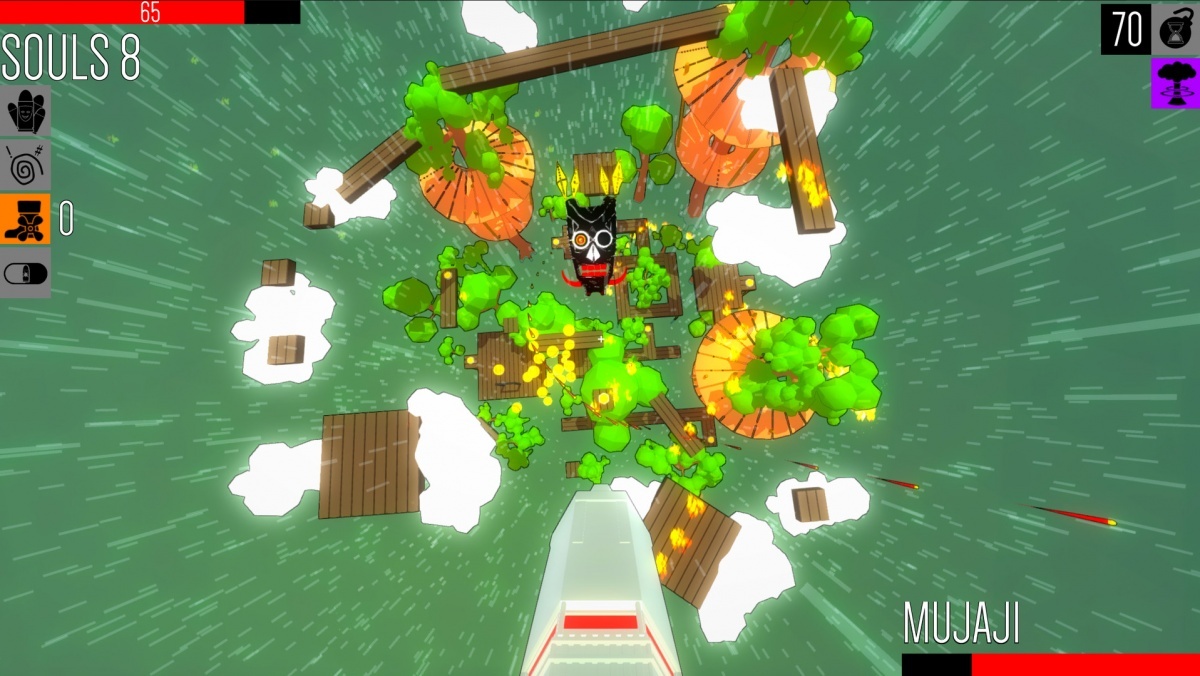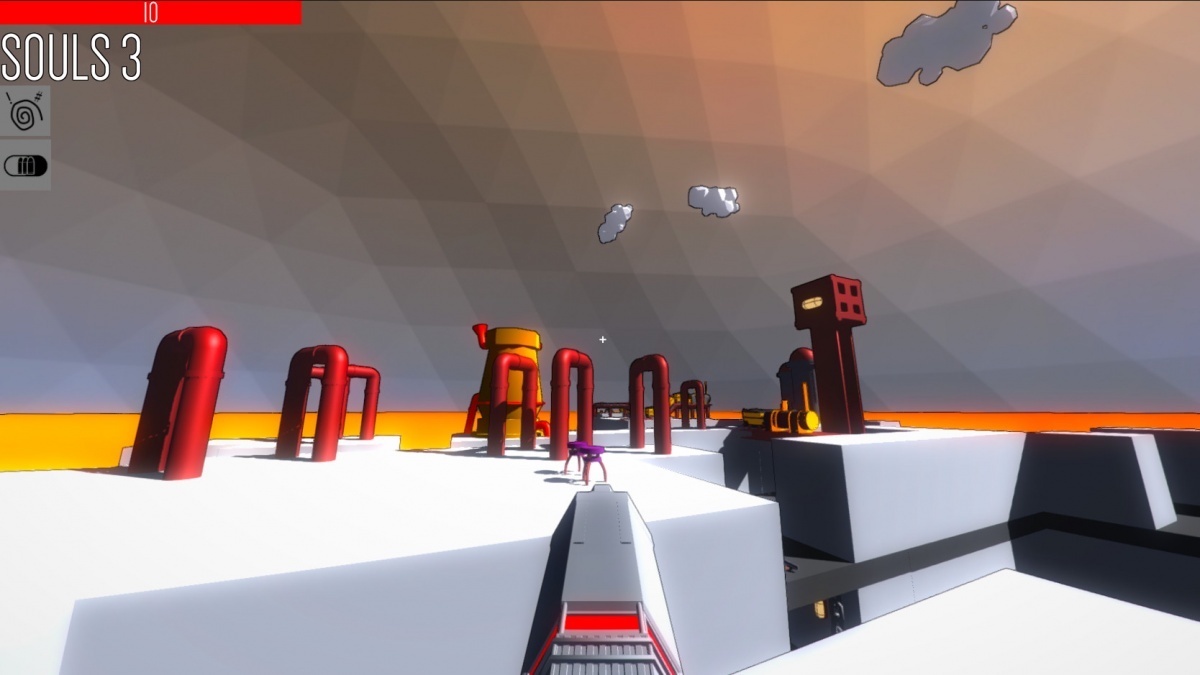Polygod (PC) Review
By Athanasios  03.09.2018
03.09.2018

Whether because of the potential that randomly generated content has, or through sheer boredom, a large portion of indie titles tend to avoid the path of the hand-crafted level design, and, sadly, that's usually a bad choice, as a world that's meticulously designed is often far better in comparison, evident in gems like Hollow Knight. Polygod doesn't care, though, and, once more, tries to go down the other, hard and bumpy road, with a low-poly, fast, and surprisingly challenging, FPS, where RNG is God.
First things first: Polygod has low-poly graphics. Cool? Cool. Like with all visual styles, however, it's the execution that matters, and this doesn't even try, managing to bring a whole new meaning to the label 'minimalistic;' long story short, this looks extremely dull, and never really tries to stir things up, unless you consider changing the colour palette a bit as stirring things up - something that's definitely a taste of things to come.

You see, it's the action where the real dullness kicks in. Starting with the weapon, it's a generic marble shooter that comes complete with weak 'pew-pew' sounds. It would be alright if this was the basic, starter gear, but no, there's only one gun here, and that… is… it. Oh, sure, it can be upgraded by spending 'souls' that defeated enemies provide, but altering the rate of fire, power, or whatnot, is not enough to make the gunfights better.
Not to mention that the enemies aren't exactly very impressive, either… Turrets, flying blobs, walking tin-cans, and… well, not much besides that, which adds a thick layer of repetitiveness to it all. Now, while Polygod is actually a pretty tough game where each point of HP is extremely important as the health meter can go down very fast, there's not exactly much strategy or skill involved, other than kiting, strafe-shooting, or simply sniping enemies from across the level.

Mechanically, there's nothing wrong with this - everything works as intended. The controls are responsive, and simple enough that it makes it easy to forgive this for not having a key-mapping option, and, finally, the multiplayer portion is devoid of any issues, and lets players have some LAN, online, or even split-screen fun with not much hassle... but while everything works okay, Polygod doesn't really understand what makes an FPS fun.
A great point of reference would be one of the best examples of the genre, 1993's Doom. Whereas Polygod has a bunch of enemies that behave pretty much the same, Doom had a variety of foes, from weak hit-scanners and strong projectile throwers, to melee, or specialised ones, forcing the player to think how to act while against a mixed group of monsters, instead of simply shooting the closest one.

It could be argued that the aforementioned Doom has pretty dumb enemy AI, and that would be correct... but it's the level design that really lets the AI shine, whether that's simplistic or not, and while Polygod's levels are randomly generated, supposedly making each run feel different, in reality, everything feels the same no matter what, since changing the size of a bunch of areas, scattering props in a different way, or adding a couple of enemies 'there' instead of 'here' isn't exactly great level design...

Cubed3 Rating
Average
It takes a certain level of mastery to avoid falling victim to the problems that follow rogue-likes with randomly generated content. With Polygod's repetitive nature and overall simplistic gameplay, though, it shows that this simply isn't at that level.

![]() 5/10
5/10
![]() 0
(0 Votes)
0
(0 Votes)
 Out now
Out now  Out now
Out now  Out now
Out now  Out now
Out now Comments
Comments are currently disabled

 Sign In
Sign In Game Details
Game Details Subscribe to this topic
Subscribe to this topic Features
Features






 Top
Top

